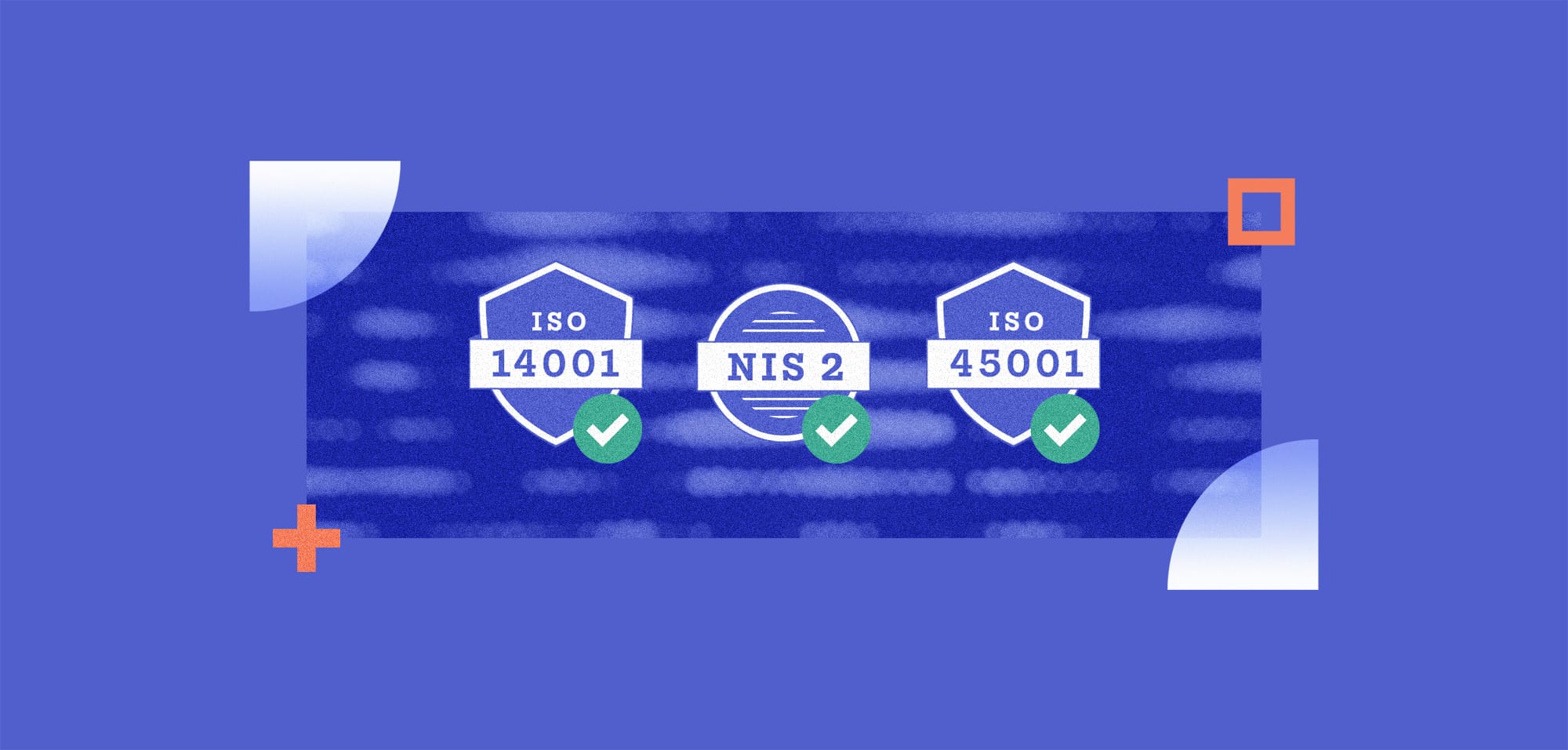
What is an ISMS and Why Every Business Should Have One
Table Of Contents:
- 1) What Is An Information Security Management System (ISMS)
- 2) What Are the Business Benefits of an Information Security Management System (ISMS)
- 3) A Standards Approach to Building An Information Security Management System (ISMS)
- 4) Why Every Business Needs an Information Security Management System (ISMS)
- 5) Strengthen Your Information Security and Risk Management Today With an ISO 27001-based ISMS
An ISMS, or Information Security Management System, is a framework that helps businesses manage and protect their sensitive information. It outlines the company’s policies, procedures, and guidelines to ensure its data’s confidentiality, integrity, and availability. In today’s digital age, where cyber threats are rising, and data breaches can have severe consequences, businesses of all sizes need an ISMS. This blog will explore what an ISMS is and why every business should have one.
What Is An Information Security Management System (ISMS)
An ISMS, or Information Security Management System, is a comprehensive approach to managing an organisation’s most valuable commodity, data. It involves implementing and maintaining a set of policies, procedures, and guidelines designed to protect that data’s confidentiality, integrity, and availability.
At its core, an ISMS is a systematic and proactive approach to managing data. It helps businesses identify, assess, and prioritise their information security risks and implement controls to mitigate those risks. It also includes ongoing monitoring and review processes to ensure that the controls are effective and to identify and address any weaknesses.
An ISMS typically includes the following elements:
-
Policies and procedures:
These outline the organisation’s approach to information security and the responsibilities of employees in protecting sensitive data.
-
Risk assessment:
This involves identifying and assessing the potential risks to the organisation’s information and determining the appropriate controls to mitigate those risks.
-
Implementation of controls:
This includes implementing technical and organisational measures to protect the organisation’s sensitive data.
-
Ongoing monitoring and review:
This involves regularly reviewing the effectiveness of the ISMS and making any necessary changes to ensure that it meets the organisation’s needs.
By implementing an ISMS, businesses can protect their sensitive data from cyber-attacks, breaches, and unauthorised access. It is an essential element of a company’s overall risk management strategy and helps ensure its data’s security and confidentiality.
What Are the Business Benefits of an Information Security Management System (ISMS)
Cyber attacks are increasing globally and can significantly impact an organisation and its reputation. An information security management system (ISMS) helps protect an organisation and keep it out of the headlines by ensuring it has the tools to strengthen it across the three pillars of cybersecurity: people, processes and technology.
Some of the business benefits of implementing an ISMS include the following:
-
Improved security:
An ISMS helps businesses identify and assess their information security risks and implement mitigation controls. This can help to reduce the likelihood of data breaches and cyber attacks, which can have severe financial and reputational consequences.
-
Enhanced compliance:
Many industries have specific regulations and standards related to information security, such as the Health Insurance Portability and Accountability Act (HIPPA), the Payment Card Industry Data Security Standard (PCI DSS) and the Trusted Information Security Assessment Exchange (TISAX®) in the automotive sector. An ISMS not only helps ensure effective information security, but it can also help companies to meet these additional industry-specific compliance requirements and avoid costly fines and penalties.
-
Increased efficiency:
By integrating information security and data management processes into a single system, an ISMS can eliminate duplication and overlap whilst also improving communication between different departments and teams within an organisation leading to better efficiency and productivity.
-
Improved customer confidence:
Businesses can enhance customer trust and confidence in their organisation by demonstrating a commitment to protecting sensitive customer data.
-
Competitive Advantage:
Implementing an ISMS can help businesses improve their reputation with prospective clients and strengthen relationships with existing stakeholders whilst setting themselves apart from other organisations when competing for business.
Overall, an ISMS can help businesses protect their sensitive information, meet compliance requirements, and improve their overall efficiency and reputation.
A Standards Approach to Building An Information Security Management System (ISMS)
Building an Information Security Management System (ISMS) using a recognised standard, such as ISO 27001, can help organisations ensure that their ISMS is comprehensive, effective, and meets industry-specific requirements and best practices.
ISO 27001 is the international standard for creating and maintaining an ISMS and provides a set of guidelines and requirements for establishing, implementing, maintaining, and continually improving an ISMS. It covers a wide range of information security controls, including physical, technical, and organisational measures. It helps organisations identify and assess their information security risks and implement mitigation controls.
With ISO 27001, organisations can achieve certification that their ISMS meets the highest regulatory standards. Some organisations will only work with companies that can demonstrate they have been certified to ISO 27001 or other approved frameworks.
ISO 27001 can also help you comply with the GDPR (General Data Protection Regulation) and the NIS Directive (Directive on security of network and information systems), as many of their requirements overlap.
Why Every Business Needs an Information Security Management System (ISMS)
Business success is now so intrinsically linked to information security success that any organisation looking to futureproof itself needs to demonstrate that it meets exceptional information security, data privacy and cybersecurity standards to create a secure and sustainable platform for growth.
On average, security breaches cost large organisations between £1.46m and £3.14m and small businesses between £75k and £311k. Under the EU GDPR, organisations can face fines of up to 4% of global turnover. The reputation hit can be very big too. An effective ISMS will:
- Give your customers and stakeholders infosec certainty
- Safeguard your organisation’s brand, results and stakeholders
- Help you win new business, enter new markets and grow
In the longer term, an ISMS will help organisations:
- Reduce information security and data management costs while increasing efficiency
- Provide actionable data insight whilst reducing admin drudgery
- Make it easy for users to understand and comply with information security management requirements
Fundamentally, an ISMS is an essential element of a company’s overall risk management strategy and helps to ensure the highest possible standards of information security, data confidentiality and company success.
Strengthen Your Information Security and Risk Management Today With an ISO 27001-based ISMS
If you’re looking to start your journey to better information and cyber security, we can help.
Our ISMS solution enables a simple, secure and sustainable approach to information management with ISO 27001 and other frameworks. Realise your competitive advantage today.
TISAX® is a registered trademark of ENX Association. Alliantist Ltd. has no business relationship with ENX Association. The mention of the TISAX® trademark does not imply any statement by the trademark owner as to the suitability of the services advertised above.




